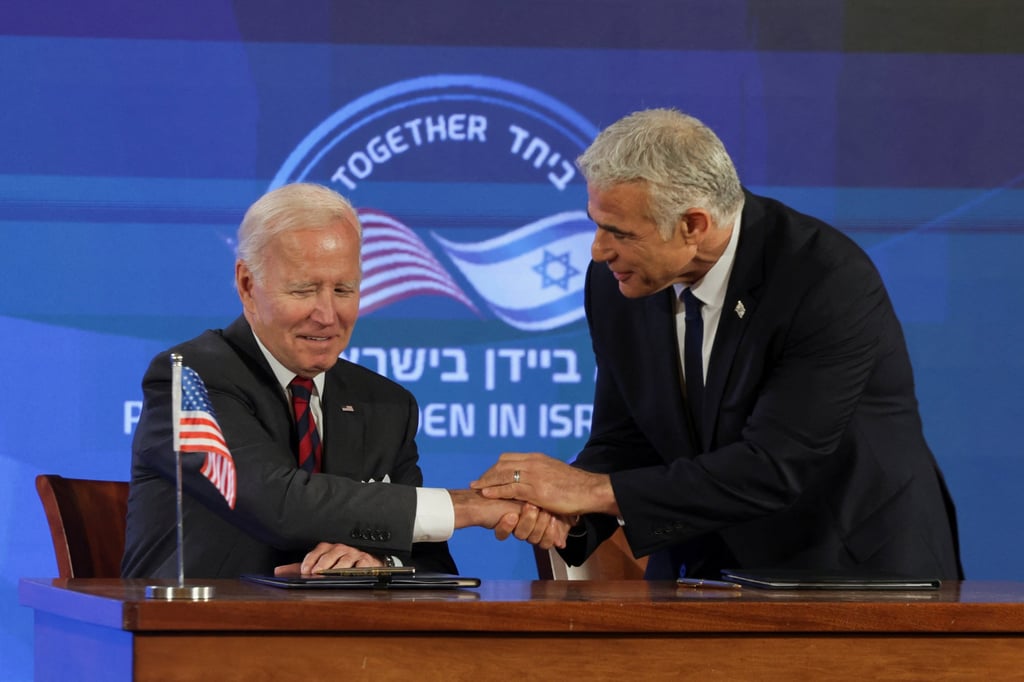Is US plan for ‘Middle East Quad’ another security challenge for China?
- The new I2U2 grouping – named after its members India, Israel, the US and UAE – has the stated aim of focusing on economics
- China is concerned its role could expand to countering its growing presence in the region, an area in which India could play a key part

While the trip was met with intense criticism at home for producing few tangible deliverables, the emergence of a new regional partnership with India, Israel and the United Arab Emirates – known as the I2U2 – has raised eyebrows in China.

After the first virtual summit of the group it issued a statement saying it “aims to … tackle some of the greatest challenges confronting our world, with a particular focus on joint investments and new initiatives in water, energy, transportation, space, health, and food security”.
While observers agree that it is a deliberate attempt to play down the geopolitical differences over China and Iran among the four nations, they are divided over whether it will one day become another US-led bloc targeting China.
US national security adviser Jake Sullivan said the new grouping “can become a feature of the broader region, just as the Quad [formed by the US, Japan, India and Australia in the Pacific region] has become a central pillar of the Indo-Pacific strategy of the United States”.
Its stated purpose did not mention China or Iran’s nuclear ambitions, but Beijing is clearly wary about the Biden administration’s efforts to counterbalance China’s growing influence in the Middle East.